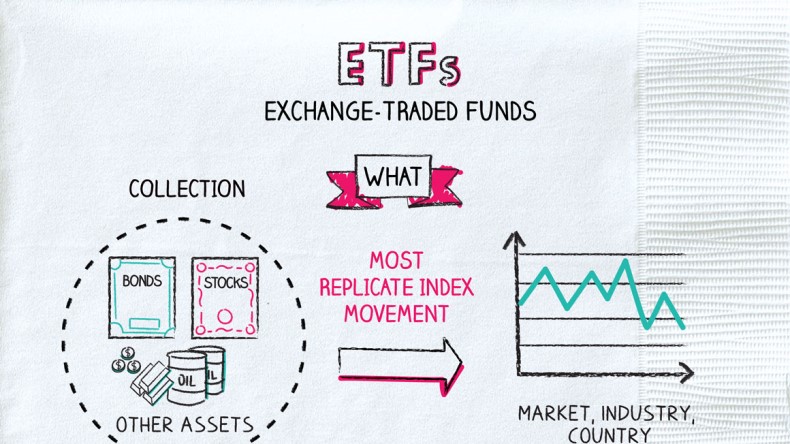ETFs Meet Blockchain
February 3, 2023
Exchange Traded Funds, or ETFs, were first introduced in the 1990s. They are simply a “basket” of securities that track a certain index. Since their inception, ETFs have grown immensely in popularity and have also matured substantially as well. Now, a new stage of ETFs is in the works. This stage incorporates ETFs with blockchain technology, making it decentralized. (Click here to learn more about Blockchain and Crypto)
D-ETF, the first real decentralized ETF was launched in quarter four of 2022. This ETF contains a collection of cryptocurrencies, but instead of running off of the traditional trading platform, it operates on decentralized Blockchain technology.
This strategy is taking elements of ETFs that have been proven and favored by the investor class—such as broad diversification, transparency, liquidity, systematic management, low expenses, passive investing, etc.—and running this over the Ethereum blockchain! To me, this is precisely what the DeFi (Decentralized Finance) industry is looking to accomplish: take elements of traditional finance, like ETFs, and utilize blockchain technology to make them more efficient.
For instance, ETFs are highly liquid (meaning they can be easily sold and turned into cash) but they only trade during market hours, whereas crypto markets never close. And while ETFs are largely transparent, crypto is even more due to the decentralized ledger. Everyone can see the same records throughout time, for all participants and all transactions. Blockchain technology has numerous benefits that if paired with ETFs, it can result in the same benefits as traditional ETFs. These include smart contacts, ease and speed of transaction, etc. If developed correctly, I believe that this concept can change the game for investing in ETFs, and investing in general.
However, while these are good things for the investor, they can present risks as well. By detaching operations from a regulated exchange, there is more risk and uncertainty for the investor. This is because the decentralized nature of ETFs provides less room for regulation, which in turn, results in uncertain protection for the investor. After all, who is protecting them against bad actors and establishing laws to ensure efficient order flow and execution?
Vanguard, one of the largest and most respected ETF issuers, has already begun incorporating blockchain technology into its operations! And they are far from the only ones doing that. Many different types of funds maturing and merging to a certain extent.
Considering that this type of security is rather new, I would probably hold off on investing in it and wait until it becomes more mature. Furthermore, I expect D-ETF to be immensely volatile for numerous reasons:
- It is new to the market
- Its concept is somewhat foreign and the first of its kind
- Cryptocurrencies tend to be very volatile
However, when traditional ETFs initially launched, they were also considered new technology, and many people felt they were not investable at that point either. Some still do. But over time, they have grown tremendously—to the point that they are now gaining market share at the highest rate of any investment vehicle.
Overall, I believe that in time, the gap between actual ETFs and D-ETFs will narrow. I imagine the best of both worlds coming together. Perhaps this is the future of investing.
















































































































































